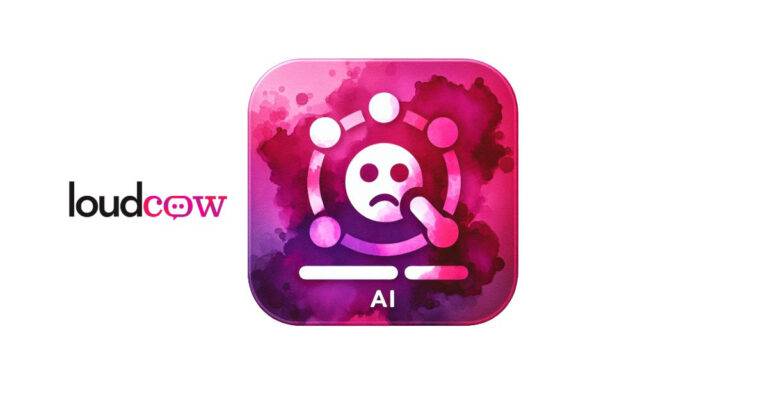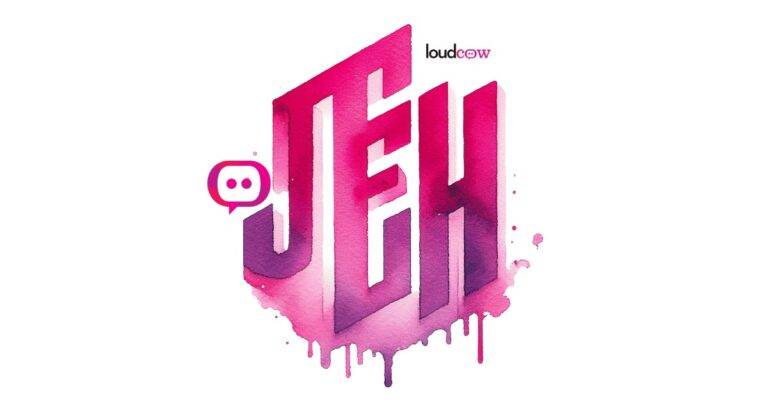Survival of the fastest
If you’d asked me a year ago whether I thought WordPress had a long future ahead, I’d have answered with a confident yes.
But now? I’m not so sure.
I build, write for, host and maintain WordPress websites.
It’s what I’ve done for years. And I’m now watching—firsthand—as artificial intelligence barges into my business world like an over-caffeinated intern who can write copy, design layouts, optimise SEO, and debug code… all before I’ve finished my morning coffee.
In this landscape, WordPress must adapt to stay relevant.
As we embrace AI, WordPress continues to be a powerful tool for web development.
AI is transforming WordPress. Not gradually. But like…this blog post is probs already outdated.
From Clunky CMS to AI-Powered Beast
The WordPress we knew/know still — a flexible but sometimes frustrating open-source CMS — is being reshaped into something… more intelligent?
AI isn’t just for coders to play with anymore. It’s now baked into every part of a website build process:
- Writing content? Tools like ChatGPT, Jasper, and AI Engine can generate blogs, product descriptions, and landing page copy in seconds. WTF!!
- Designing pages? AI layouts are based on your brand colours, with font pairings and user experience tweaks already sorted. Good god. I’m a non-relevant numpty
- Optimising for SEO? AI now handles keyword research, meta tags, and content grading in real time.
- Keeping sites secure and speedy? 3rd Party hosts are ramping up AI capabilities like it’s 1999 when you’re living in the 1800s.
Even customer service is being handed over to chatbots that never sleep and don’t ask for overtime.
This isn’t science fiction.
It’s live. Now. And, although it seems like it’s only really just started, the early adopters are already streets ahead.
Holy sheeeeet!
The evolution of WordPress is crucial in the age of AI.
The Rise of AI Site Builders
The market for AI-powered site builders is booming — from USD $1.5 billion in 2023 to a projected $7.9 billion by 2032. Platforms like 10Web and Bookmark already let users build complete, functional websites just by answering a few questions.
It’s essential for WordPress users to stay informed about these changes.
No coding. No design background. Just plug in your logo and let the machines do the heavy lifting.
For small business owners or solopreneurs, it’s brilliant. For WordPress professionals like me? A little terrifying.
Because here’s the truth…
As a WordPress Specialist, I’m Wondering: Am I Still Relevant?
This is not just a pivot for me — it’s a survival strategy. I’ve spent years designing clean layouts, writing thoughtful copy, and building fast, secure WordPress sites. And now, in under 10 minutes, AI can do most of that — for free, or close to it.
I won’t sugarcoat it: It’s farrrrrrrr*ing confronting.
Am I selling buggy whips in the age of the automobile? Is my value as a WordPress specialist now obsolete?
From Underneath My Blankie….Here’s What I’ve Realised
AI might be fast, but it’s not always right. It makes things up. It misses nuance. It can’t REALLY understand your brand voice (lazy brand managers will disagree here), your audience quirks, or the messy real-world complexity of running a website for a living, not just building one.
It still needs a human — someone who can steer, review, refine, and inject the insight, ethics, and empathy that AI lacks.
Yes, AI is a tool. But it needs a creative director.
It’s tempting. But don’t get completely sucked into vibe coding apps and think you’re suddenly a cool, smart coder (like I have!)
Here’s where my concern deepens.
WordPress itself might be under threat from the rise of “citizen developers” — everyday people using AI-powered tools like Replit or Lovable to build functional websites and apps with nothing more than a good prompt and a bit of vibe.
Who wouldn’t be tempted by that?
Why bother wrangling with monthly plugin updates (annoys the shite out of meeeeee), security patches, compatibility issues and code conflicts when you can just type: “Build me a website with three pages, a contact form, and a pricing calculator” — and it’s done in seconds.
No CMS. No dashboard. No traditional frontend at all.
No backend to log into either.
There’s the catch. And it’s a big one.
When you ditch a CMS like WordPress, you’re also giving up your ability to make quick, no-code edits.
Want to change your opening hours? Adjust a product price? Add a blog post?
Now you’re reliant on your vibe coder or developer to implement even the slightest change.
If you’re not a coder (and most of us aren’t), that “freedom” suddenly becomes a bottleneck.
The CMS, for all its clunk, gave(gives) business owners control.
These new AI tools? They risk handing it right back to the devs — or worse, to a locked AI interface you can’t tweak yourself. OR – another bad – you’re locked into a monthly software subscription with an AI tech company that knows you’ll pay anything to keep the content creation pain away.
So far, for the average joe, these AI-built, no-CMS websites often lack scalability or the kind of nuanced UX and data handling a custom WordPress build can offer.
There’s also the issue of maintenance, version control, and collaboration — all things WordPress has been solving for years with plugins, roles, backups, and staging environments.
AI code may look magical, but it can be messy under the hood, and without proper structure, you’re stacking technical debt faster than you realise.
Plus, without human oversight, AI can introduce bugs, bad accessibility, and outright security holes.
A proper WordPress build, when done well, still offers more flexibility and long-term stability than any AI shortcut… for now.
So, Will WordPress Survive? Or should I say “Will I survive?!”
Yes. But only if it evolves — and only if I evolve with it.
WordPress has always been about flexibility and community. AI is now part of that ecosystem.
Ultimately, embracing innovation within WordPress will shape its future.
Not a replacement. A co-pilot.
The developers and designers who thrive will be the ones who stop hand-coding every button and instead start asking better questions, crafting better prompts, and leading with strategy. It’s not the end of WordPress. It’s the start of WordPress 3.0 — intelligent, agile, and human-led.
And that’s where I’m choosing to sit: right at the intersection of AI and WordPress.
Yeah, I will survive.
What’s Next?
I’m gearing up to show you — in real time — how to create a fully functional WordPress website using the same AI technology that built this website you’re looking at right now.
It’s wild watching it happen: from a blank screen to a structured MVP site in literal minutes. And yes, it’s a little scary… but also really, really exciting.
Stick around. The robots haven’t taken over yet — but they’re definitely on the tools.
Whooooo!
Catie Xx






